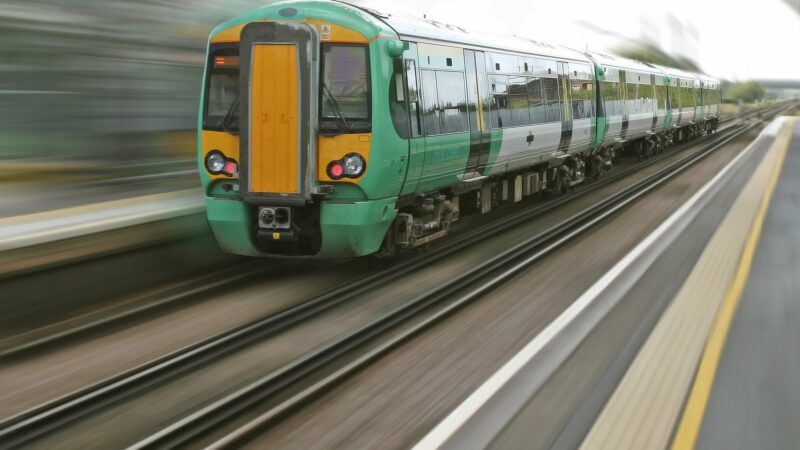
Labour is set to announce a reduction in rail fares that would amount to a total cut of 33% – saving the average commuter over £1,000 per year according to the party.
The plans for an integrated railway system under public ownership will be detailed on Monday, including wholesale reform of the ticketing system that Labour says would save the average commuter £1,097.
Labour intends to replace the current system with one based on a London model of ticketing, creating zonal rail fares and rolling out contactless payment, while reducing regulated fares by 33%.
Commenting ahead of the announcement, Jeremy Corbyn said: “Travelling by train is my favourite way of getting around the country but for too long a fragmented and privatised rail system has ripped-off passengers.”
On his public ownership plans, the Labour leader added: “Taking back control of our railways is the only way to bring down fares and create a railway network that is fit for the future. Labour will bring about real change on the railways because we are on the side of passengers.”
Labour’s transport spokesperson, Andy McDonald, said: “Privatisation has created one of the most complex, exploitative and expensive ticketing systems in the world.
“Labour will scrap the bewildering and outdated fares and ticketing system that discriminates against part-time workers, discourages rail travel and excludes the young and low paid.”
The party says it would ensure that workers who commute fewer than five days per week pay no more for each journey than full-time workers who use weekly season tickets.
McDonald added: “Rail passengers who want to save hundreds or thousands of pounds next year need to vote Labour on December 12th. Labour will deliver a railway in public ownership for the many, not the few.”
Labour’s announcement follows news from train operators on Saturday that the average fare price is set to increase by 2.7% from January 2020. This means that the average commuter will be paying 40% more for their season ticket than they did in 2010.
The rise in the cost of train travel comes as the watchdog Transport Focus has reported falling levels of satisfaction from rail passengers, finding that fewer than half are happy with the value they get for the price of tickets.
Around 45% of national rail fares are subject to regulation. These fares tend to be on commuter routes where people have few practical alternatives to rail. They include season tickets and a proportion of anytime day, off-peak, and super off-peak fares.
Regulated fares are currently pegged to the retail price index (RPI), which was 2.8% in July 2019. The scheduled January increase is higher than another measure of inflation used by the government, the consumer price index (CPI), which stood at 1.5% in October.
Commenting on the proposed fare cut, TSSA general secretary Manuel Cortes said: “This move will be cheered up and down the land, before breakfast, lunch and dinner. It will come as a massive boost for millions of passengers of all ages, and types of work.”
Over the weekend, Labour also pledged to implement a ‘healthy streets programme’ that would make England one of the best countries in the world for walking and cycling through new safe routes and universal affordable access to bicycles.




More from LabourList
Government announce SEND reform in schools white paper
SPONSORED: ‘Industrial hemp and the challenge of turning Labour’s priorities into practice’
‘A day is a long time in politics, so we need ‘action this day’’